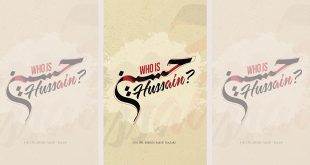The Yale University PhD Program in Islamic Studies is devoted to comprehensive research on the religion of Islam and to training superior students for academic careers in that field.
Students accepted into the program are offered full scholarships along with a multi-year stipend. Islamic Studies is one of ten fields in the Department of Religious Studies, where students and professors researching different religious traditions interact. In addition to Prof. Gerhard Bowering and Assoc. Prof. Frank Griffel, students also have the benefit of professors in the Near Eastern Studies, History, and Political Science Departments.
Students in Islamic Studies are expected to develop both a comprehensive knowledge of Islamic intellectual history and religious thought, as well as mastery of a field of specialization and the requisite tools for critical scholarship on Islam.
They are expected to demonstrate competence in:
Islamic religious history (focusing on the development of Islamic civilization, law, society and institutions in the period from the origins of Islam to 1500 CE);
Islamic religious thought (focusing on Islamic philosophy, theology, Sufism and Shi’ism);
Islamic scripture and tradition (focusing on the composition, redaction and interpretation of Qur’an and Hadith);
and modern and contemporary Islam (focusing on 16th to 21st century developments in the Arab Middle East, the Turco-Iranian world, South Asia, Southeast Asia, Africa and, most recently, Europe and America).
Frank Griffel is responsible for modern and contemporary Islam, Gerhard Bowering for Islamic religious history; and thought as well as Qur’an and Hadith.
Arabic language and literature, as well as Persian and Turkish, are taught in the Department of Near Eastern Languages and Civilizations. Modern Iranian history and Islamic political thought are taught respectively in the Department of History and Political Science.
Resources
Graduate students in the Program in Islamic Studies enjoy full access to the faculty of Yale University and the extensive resources of her library. Yale’s Near Eastern Collection boasts of over 150,000 volumes, with a particularly high quantity of early Arabic printed materials. Additionally, the Near Eastern manuscripts collection at Yale’s Beinecke Library consists of well over 5,000 manuscripts, while works specific to the field of Arabic and Islamic Studies form the principle strength of the collection. Yale’s Sterling Memorial Library also maintains an Arabic and Islamic Studies reading room that houses important reference works in the field.
Beyond its impressive library collections, Yale University sponsors a number of colloquiums and working groups that are pertinent to the field of Islamic Studies. These include:
Islam and the Modern Day Lunch Colloquium
A weekly lunch colloquium in the Senior Dining Room at Jonathan Edwards College.The colloquium’s focus is on Islam and the modern day, addressing topics such as:
· Religion and Politics in Iraq
· The Kurdish Question
· The Muslims of Gujarat
· The Nation of Islam, Orthodox Islam and the African-American Community
· Islam and the Israeli-Palestinian Conflict
· Islamic Feminism
· America and Islam after 9/11
· Emblems of Difference: American Media and the Taliban, ca. 1996
· Experiences with Muslims in Zanzibar
· Image and Idea: Art and Architecture in Post-Revolution Iran
· Sufi Orders in Senegalese Culture, Society, and Politics
The Arabic Philosophy Working Group
This working group sponsored by the Whitney Humanities Center promotes the study of Arabic philosophy at Yale. It addresses itself equally to philosophers, Arabists, and Islamicists as well as to scholars of Classics, and Medieval, Renaissance, and Judaic Studies. It meets at least monthly for the presentation of an invited paper, which center on Arabic philosophy but can include the discussion of relevant Greek, Hebrew, Latin, and Persian texts that predate or continue the Arabic philosophical tradition.
The Critical Islamic Reflections Conference
Yale University’s Critical Islamic Reflections group consists of a cross-section of graduate and undergraduate students organized to pursue critical academic scholarship on topics regarding Islam and Muslim society. Since 2000, the CIR group has successfully organized five annual conferences. Past programs have featured leading and emerging scholars in the American Islamic context, many of whom possess backgrounds in both traditional Islamic learning and Anglo-American academia.
The conference is designed to provide a broad framework to pursue a sophisticated understanding and discourse of issues pertinent to Muslims in America in light of prevailing realities. While focusing discussion around specific themes each year, the group aims to examine problems against a backdrop of broader, more fundamental questions confronting Islam and other religions.
The Yale Arabic Colloquium
The NELC Department’s YAC brings together each month all students and faculty at Yale whose academic work involves Arabic – including Religious Studies, Medieval Studies, Comparative Literature, and Anthropology – to discuss their work in conversation. Presenters alternate between advanced graduate students and new or visiting faculty.
Contact the Center
Professor Frank Griffel
Yale University Program in Islamic Studies
451 College Street
P.O. Box 208287
New Haven, CT 06520-8287
Phone: (203) 432-0828;
Email: frank.griffel@yale.edu
Website: https://religiousstudies.yale.edu/academics/fields-study/islamic-studies
 Ijtihad Network Being Wise and Faithful Muslim in the Contemporary World
Ijtihad Network Being Wise and Faithful Muslim in the Contemporary World
